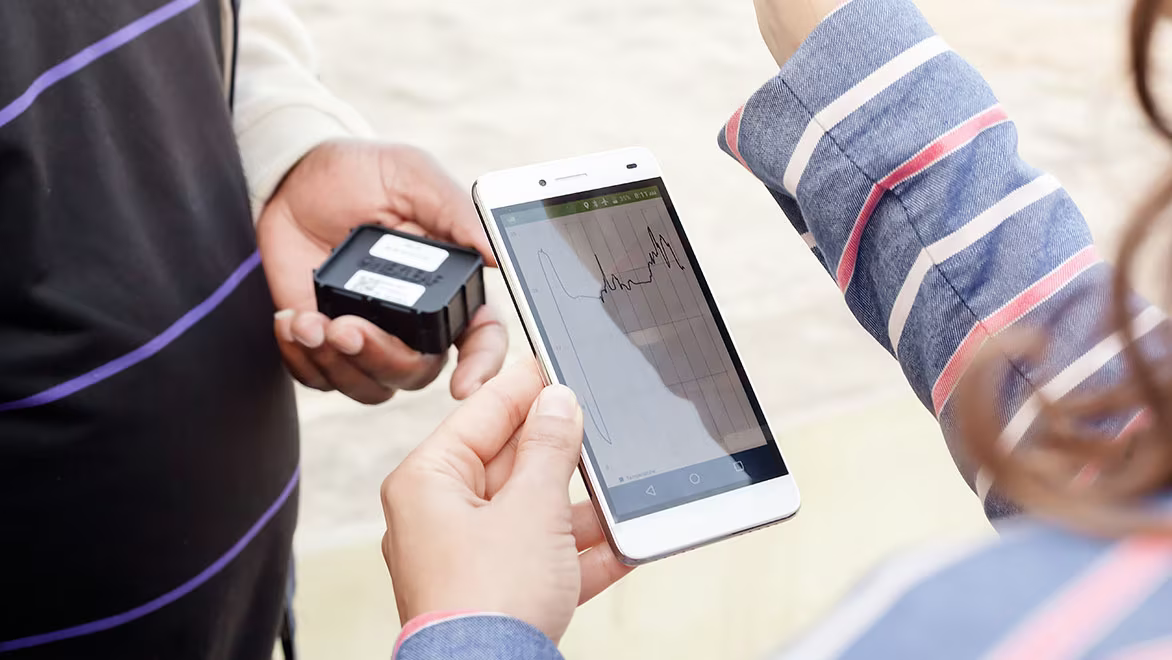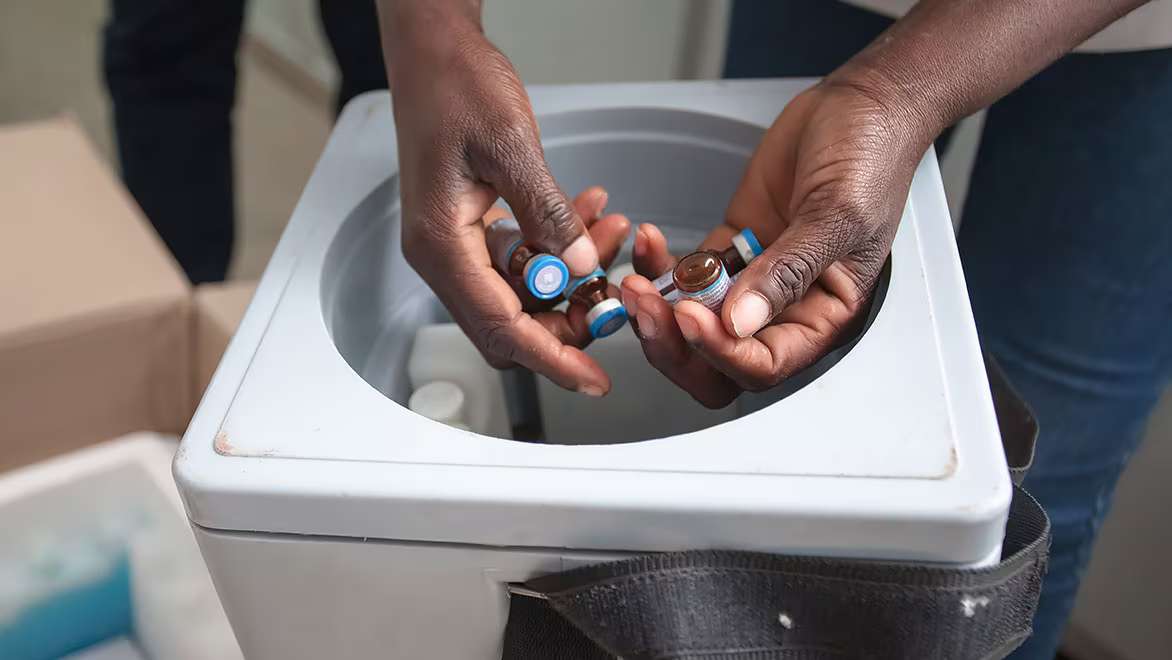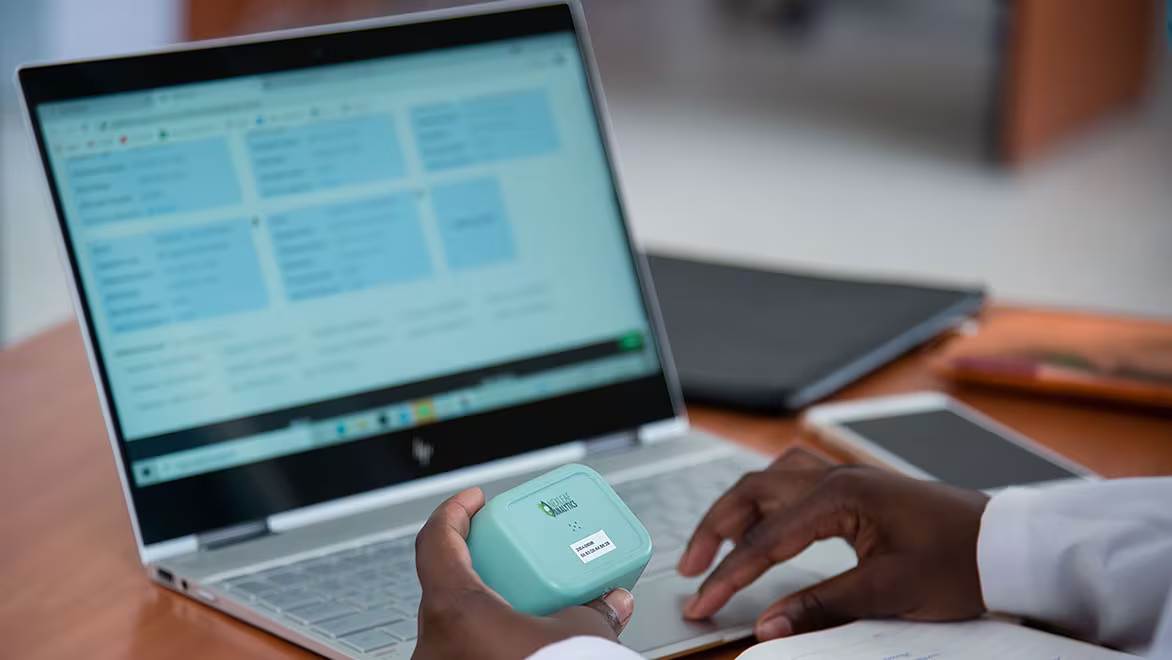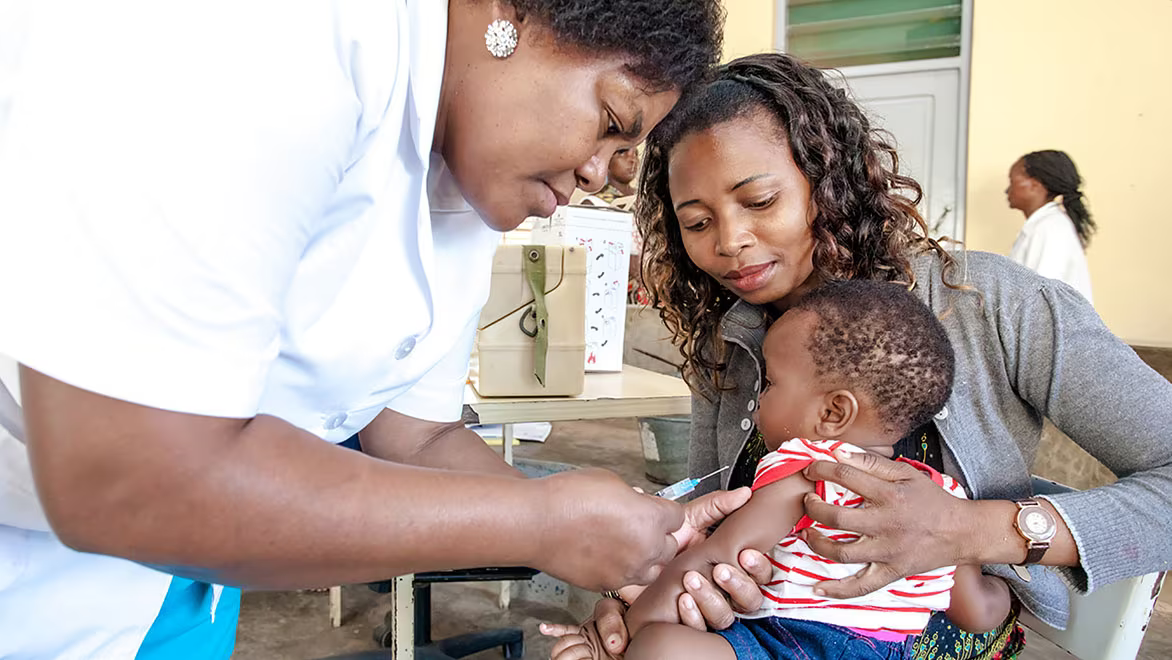To support life-saving vaccine distribution in low-to-middle-income countries, a team of Autodesk pro bono consulting employees worked with Nexleaf Analytics to develop a data visualization dashboard.
Image courtesy of Nexleaf Analytics
Nexleaf Analytics is a US-based nonprofit that uses data and technology to drive improved health outcomes in low-to-middle-income countries, where an estimated 55% of cold chain equipment is poor or non-functioning. Keeping consistent temperatures across the supply chain of warehouses, trucks, refrigerators, and clinics—known as the “vaccine cold chain”—is essential to ensure vaccines remain potent and work.
Image courtesy of Nexleaf Analytics
An estimated 75% of vaccines are exposed to harmful temperatures before reaching their destination, and 1 in 5 children worldwide lack access to basic vaccines they need. Nexleaf’s ColdTrace sensors gather real-time data to notify health workers via SMS when a refrigerator is too hot or too cold, while informing ministries of health about how to allocate resources and develop vaccination distribution strategies.
To maximize the value of ColdTrace data, Nexleaf looked to the Autodesk Foundation for pro bono technical expertise to support the creation of a centralized tool that allows countries to see how their vaccine refrigerators are performing compared to each other and other countries.
Image courtesy of Nexleaf Analytics
A pro bono team of seven Autodesk employees developed data visualizations with Nexleaf for a tool called the Intelligent Maintenance Planning Tool (IMPT). IMPT is being created in partnership with Gavi, the Vaccine Alliance, giving global stakeholders a real-time look at performance trends in vaccine cold chains across the world. IMPT allows low-income countries with smaller stockpiles of equipment and fewer resources to access valuable industry- and region-wide trends they might not otherwise have, so they can learn and make smart investments to improve overall vaccine distribution efforts.
– Nithya Ramanathan, CEO & Co-Founder, Nexleaf Analytics
Autodesk pro bono consultant Deborshi Goswami, a senior data scientist in San Francisco, presented the tool to Gavi, the Vaccine Alliance, with sophisticated data insights and a range of scenarios in which IMPT could advance mutual public health goals.
At Autodesk, Deborshi analyzes data and writes programs to improve Autodesk’s customer support systems. “Nexleaf’s ask, while in a different domain, was very similar to my day job,” he says. “The challenge here was how to quickly visualize the weakest points in a cold chain, to help countries optimize their vaccine delivery systems.”
Image courtesy of Nexleaf Analytics
The pro bono project highlighted the value of data visualization and set Nexleaf on the path to building greater capacity that will strengthen its products and partner relationships, as well as increase its impact on the pressing problem of vaccine distribution. Nexleaf built its learnings from the project into a job description for a recently hired data visualization specialist. With a strong existing track record of using technology to monitor and improve vaccine cold chains, Nexleaf continues to build upon its data-driven approach to scaling solutions. To date, three governments, Haiti, Togo and Senegal, have signed on to use IMPT.




